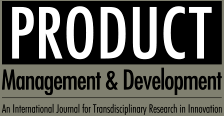Developing a knowledge-reuse tool for automatic tolerancing in product design
Fabio Carmo, Milton Borsato, Vitor Souza
Abstract
Some activities in the Product Development Process (PDP) are repetitive and time consuming, worsen productivity. Time and cost reduction are achievable through increasing the automation level of such activities, e.g., through knowledge reuse acquired on previous projects. Tolerancing is among these activities where the lack of a systematized, automatic process, leads to rework and productivity loss; there is a need to improve the efficiency of this process, based on knowledge from previous projects. Research has been performed with this objective, but normally resulting in sophisticated processes and tools, hard to implement in less developed industries. This research proposes to fill this gap, by developing a tool to support designers during the tolerancing activity, by automatically indicating tolerances for the dimensions the designer wishes to determine, in the context of an industry that designs and produces laundry machines. This challenge was approached following Knowledge-based Engineering and Case Based Reasoning principles. The evaluation phase revealed that the usage of the tool by the designers resulted in a decrease of activity time of execution and improved the performance of tolerance definition.
Keywords
References
AAMODT, A.; PLAZA, E. Case-based reasoning: foundational issues, methodological variations, and system approaches.
AICOM, v. 7, n. 1, p. 39-59, 1994. CARMO, F.; SCHMIDT, J.; BORSATO, M. Uma análise bibliométrica sobre reuso do conhecimento no desenvolvimento de produto. Blucher Design Proceedings, v. 3, n. 12, p. 1-10, 2017.
CURRAN, R. et al. A multidisciplinary implementation methodology for knowledge based engineering: KNOMAD. Expert Systems with Applications, v. 37, n. 11, p. 7336- 7350, 2010.
GAO, Y.; ZEID, I.; BARDASZ, T. Characteristics of an effective design plan system to support reuse in case-based mechanical design. Knowledge-Based Systems, v. 10, n. 6, p. 337-350, 1998.
INTERNATIONAL ORGANIZATION FOR STANDARDIZATION. ISO 2768: General tolerances, Geneva: ISO, 1989.
ROCCA, G. Knowledge based engineering techniques to support aircraft design and optimization. 2011. 339 f. Thesis (Doctorate). Delft University of Technology, Netherlands, 2011.
LU, H. et al. On the optimization of tolerance synthesis with an ontology-based approach. In: CHINESE AUTOMATION CONGRESS, 2015, Wuhan, China. Proceedings... Wuhan: IEEE, 2015. p. 7-12.
PEFFERS, K. et al. A design science research methodology for information systems research. Journal of Management Information Systems, v. 24, n. 3, p. 45-77, 2007.
QIN, Y. et al. Description logic-based automatic generation of geometric tolerance zones. International Journal of Advanced Manufacturing Technology, v. 79, n. 5, p. 1221-1237, 2015.
SARIGECILI, M.; ROY, U.; RACHURI, S. Interpreting the semantics of GD&T specifications of a product for tolerance analysis. Computer Aided Design, v. 47, p. 72-84, 2014.
ZHONG, Y. et al. Constructing a meta-model for assembly tolerance types with a description logic based approach. Computer Aided Design, v. 48, p. 1-16, 2014.
ZHONG, Y. et al. Automatically generating assembly tolerance types with an ontology-based approach. Computer Aided Design, v. 45, n. 11, p. 1253-1275, 2013.

